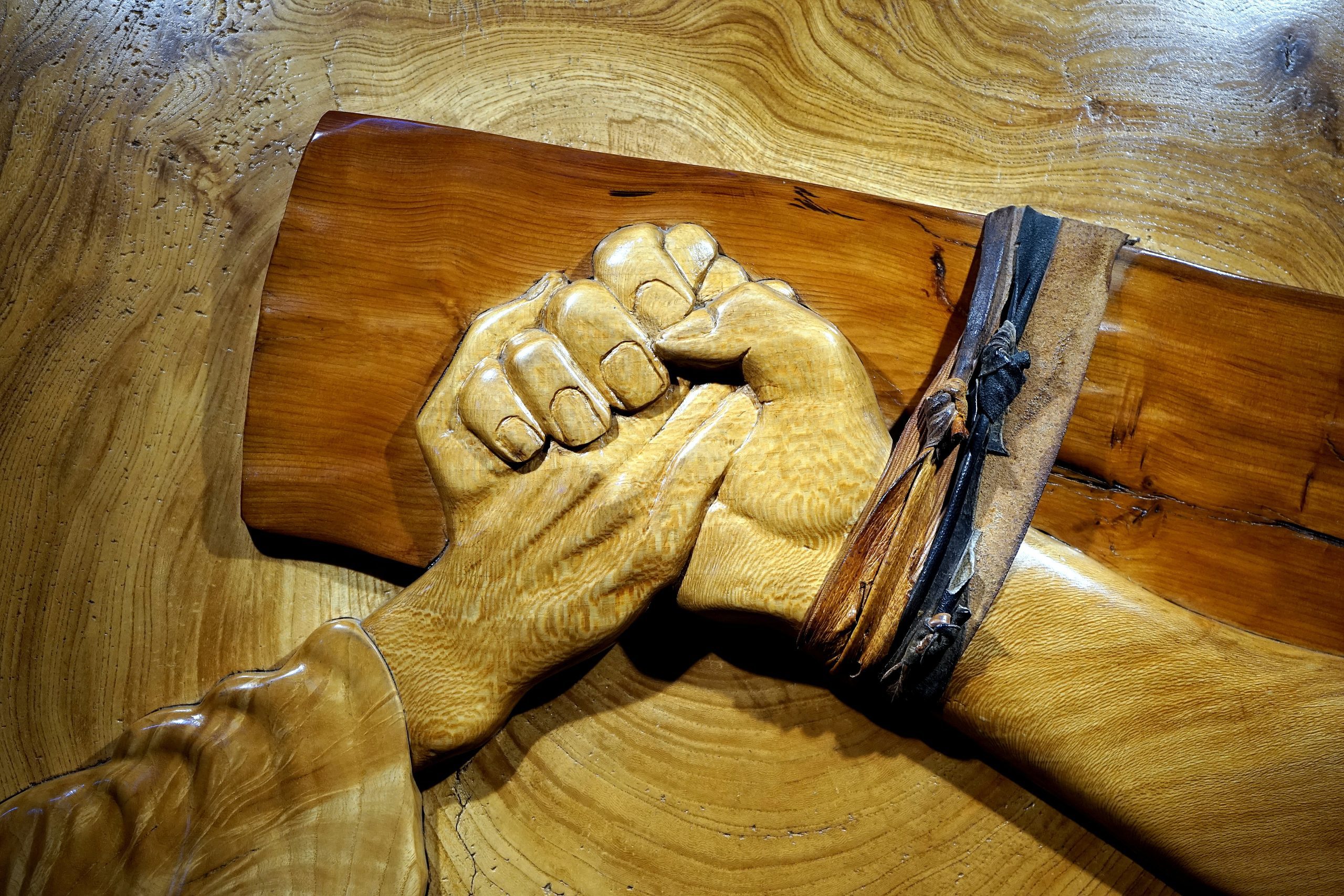
Maybe it’s a little strong, but it’s probably just about right to say that my spiritual director has saved my life at least twice in the past 15 years. And God has met me, profoundly, a thousand more times through his ministry. Father James, a Trappist monk living in Berryville, VA, has meant so much in my life that Tara and I named our first child after him, Liam Todd James Haley. Very simply, my spiritual director has helped me hear God in the concrete circumstances of my days and through the highs and lows of my own passion and helped me navigate the twists and turns of the adventure with God. It was a literal miracle that I found him when I did, and it wasn’t for lack of trying.
Spiritual directors are notoriously difficult to find, even though more and more people are seeking one. There’s been more talk about this ministry in recent years in many Christian circles. In fact, in May 2012 even the Boston Globe ran an article entitled “Growing Demand for Spiritual Directors.” My own introduction came many years ago while reading Henri Nouwen. He talked about his own spiritual director, an unfamiliar term, and I was intrigued. By that time I’d been well-mentored, often discipled, extensively taught, had had counseling, had great friends… but I hadn’t experienced what he was talking about, and it sounded like something I deeply needed. Nouwen writes:
“We need a guide, a director… who helps us to distinguish between the voice of God and all other voices coming from our own confusion or from dark powers far beyond our control. We need someone who encourages us when we are tempted to give it all up, to forget it all, to just walk away in despair. We need someone who discourages us when we move too rashly in unclear directions or hurry proudly to a nebulous goal. We need someone who can suggest to us when to read and when to be silent, which words to reflect upon and what to do when silence creates much fear and little peace.”
Spiritual direction is a very old spiritual discipline and ministry stretching back to the Desert Fathers in the 3rd century. It is the process whereby one person offers a listening, prayerful presence to another while they journey together with God. The spiritual director is one who, most simply, walks alongside another person helping them listen to what God is saying in their lives and recognize God’s action. He or she is not a counselor, who ‘listens to a person on God’s behalf,’ or a teacher primarily transferring information like a jug to a mug, as in mentoring or discipleship or coaching relationships. Rather, in spiritual direction, a director ‘listens to God on the person’s behalf.’ In a normal spiritual direction session, there is a lot of listening—listening to God and listening to each other. In other words, spiritual direction is not so much about ‘diagnosis of the other’ but rather ‘discernment with the other,’ with the primary spiritual director being the Holy Spirit who is, as Thomas Merton notes, “the True director in the fullest sense of the word.”
Two images help get at what a spiritual director actually is and does: a midwife and a hospice nurse.
A midwife is one who is familiar with the processes of gestation, labor, and birth and is there to assist with what new thing is being born. The midwife isn’t the one going through all that themselves, but they are experienced enough in the processes to know what’s going on and what to expect, when to be concerned and when pain and discomfort are simply part of the process—even intense pain! They are there to walk alongside and help with a gracious, “non-anxious presence.” And the midwife knows there is nothing they can do to make the process go any faster. Nature will take its course, and that often takes time.
Similarly, spiritual direction is the ministry of assisting with the development and birth of whatever God is doing in a person and whatever he is bringing into the world through that person. This means a person seeking spiritual direction is wanting whatever new thing God is birthing to be born in them and through them. A person in spiritual direction has said “Yes” to whatever God is doing and is committed to seeking God and listening to God in the process—as evidenced by them seeking a spiritual director!
The other image is that of a hospice nurse. These preside over a person’s death, again offering that non-anxious presence while certain things happen–often fearful things–in the necessary transition to a far better life. Similarly, and often especially in the early stages of the relationship, a spiritual director is assisting a person in their “death of self,” so that Christ himself can more fully take up residence in that person’s life (see Gal 2.20). It’s not uncommon that this is what is actually underneath a person seeking direction in the first place! God knows it’s going to be rough, so he prompts a person to seek the right spiritual discipline to help. And the director, having lived through this death themselves, walks alongside, knowing with deep and joyful confidence that bit of wisdom from CS Lewis— “Nothing that has not died will be resurrected.”
Father James has played hospice nurse to me on several key occasions and midwife on many more. I literally don’t know how I would have done life this far without him. There are simply times in our life with Jesus that we need the trained, discerning, compassionate ear of one who can help us hear Jesus over our own protests and pain, and help us see Jesus, even in the dark.
